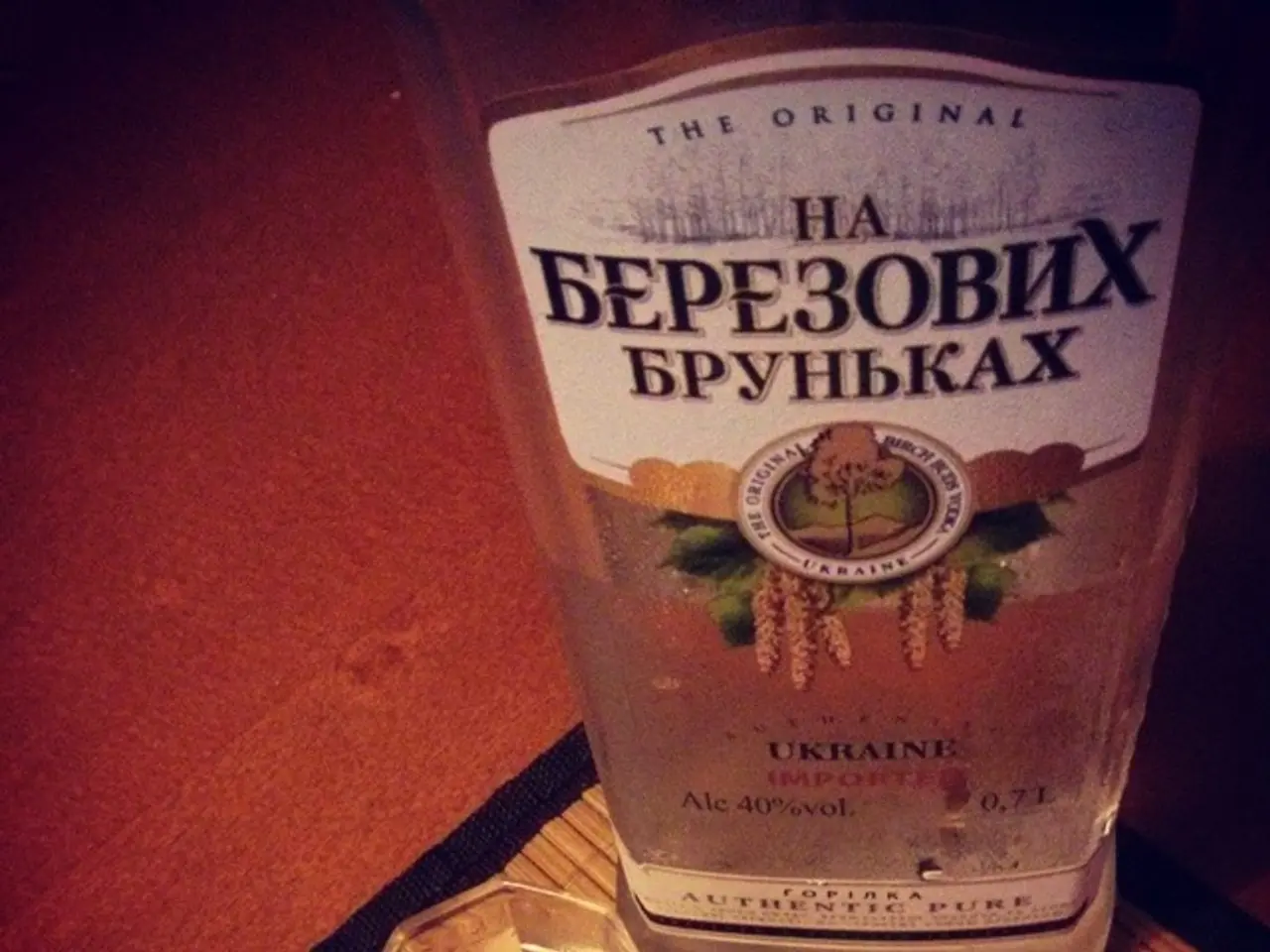Alcoholic Hiccups: Causes and Ways to Avoid Them
The diaphragm, a muscular sheet that separates the chest from the abdomen and supports breathing, plays a crucial role in the phenomenon of hiccups. Alcohol consumption can be a common trigger for this unwelcome reflex, primarily due to its irritating effect on the digestive tract and stimulation of the vagus nerve, both of which are integral to the hiccup reflex [1][3][5].
The hiccup reflex is a complex neural pathway that involves the vagus nerve, phrenic nerve, and brainstem centers. Stimulation from alcohol-induced irritation can cause involuntary diaphragm contractions and sudden glottis closure, resulting in hiccups [3][5].
Fortunately, there are several ways to prevent or manage alcohol-induced hiccups:
- Moderation in alcohol consumption: Avoiding rapid or excessive alcohol intake can help reduce digestive tract irritation and gastric distension [5].
- Vagal maneuvers: Techniques such as holding your breath, swallowing repeatedly, or gently stimulating the back of the throat can help inhibit the hiccup reflex by affecting the vagus nerve [3].
- Traditional remedies: Drinking water slowly or swallowing sugar are common methods, although scientific evidence supporting their effectiveness is limited [5].
- Medical interventions: If hiccups persist or become severe, medical treatments targeting neurotransmitter pathways involved in hiccups — including GABAergic agents (e.g., baclofen) or dopamine antagonists — may be used under medical supervision [3].
- Rare interventions: In very rare, chronic cases, interventions like a vagus nerve stimulator or nerve blocks have been employed [5].
In most cases, alcohol-induced hiccups are temporary and resolve without treatment. However, if hiccups persist for more than 48 hours, they should be addressed by a healthcare professional, as chronic hiccups, or singultus, can lead to insomnia, exhaustion, and weight loss if a person cannot eat [1][3][5].
Hiccups are characterized by involuntary contractions of the diaphragm followed by a sudden closure of the vocal cords [1]. While alcohol consumption is a common trigger, it's important to remember that hiccups can also be prompted by various other factors, such as temperature and carbonation, or overconsumption [1].
References:
[1] Mayo Clinic. (2021, March 29). Hiccups. Retrieved from https://www.mayoclinic.org/diseases-conditions/hiccups/symptoms-causes/syc-20374612
[3] National Institutes of Health. (2020, November 19). Hiccups. Retrieved from https://medlineplus.gov/ency/article/000963.htm
[5] UpToDate. (2021, January 21). Hiccups in adults. Retrieved from https://www.uptodate.com/contents/hiccups-in-adults
- Alcohol consumption, aside from causing hiccups, can lead to other health issues like Alzheimer's, hepatitis, and cancer due to its long-term effects on the liver and nervous system [1][3][5].
- For overall health and wellness, it's essential to adopt practices such as fitness and exercise, mental health management, skin care, and proper nutrition to counteract the potential damage caused by excessive alcohol consumption [6][7][8].
- Workplace-wellness programs can help individuals maintain a balanced lifestyle, offering support for mental health, nutrition, and fitness-and-exercise routines, which may reduce the likelihood of alcohol misuse [9].
- Predictive models are being developed in science to identify the risk factors associated with various diseases, including psoriasis, ulcerative colitis, and asthma, allowing for earlier interventions and personalized therapies and treatments [10].
- Adequate sleep is crucial for maintaining good health, as prolonged sleep deprivation can weaken the immune system, increasing susceptibility to illnesses like hepatitis, cancer, or even hiccups [2].
- While alcohol-induced hiccups are typically temporary, chronic hiccups, also known as singultus, can have a significant impact on quality of life, causing insomnia, exhaustion, and weight loss if left untreated [1][3][5].
- In some instances, chronic hiccups may be connected to underlying health conditions, such as gastroesophageal reflux disease, anxiety, or encephalitis, necessitating timely diagnosis and appropriate therapies and treatments [3].
- In addition to medical interventions for hiccups, lifestyle changes can play a role in minimizing their occurrence, for example, focusing on stress management or adjusting dietary habits [3][5].
- With the growing understanding of the complex neural pathways that govern hiccups and associated health issues like Alzheimer's, colitis, or sleep disorders, there is hope for future breakthroughs in theadvent of targeted therapies and treatments that significantly improve quality of life. [1][3][5][10]




